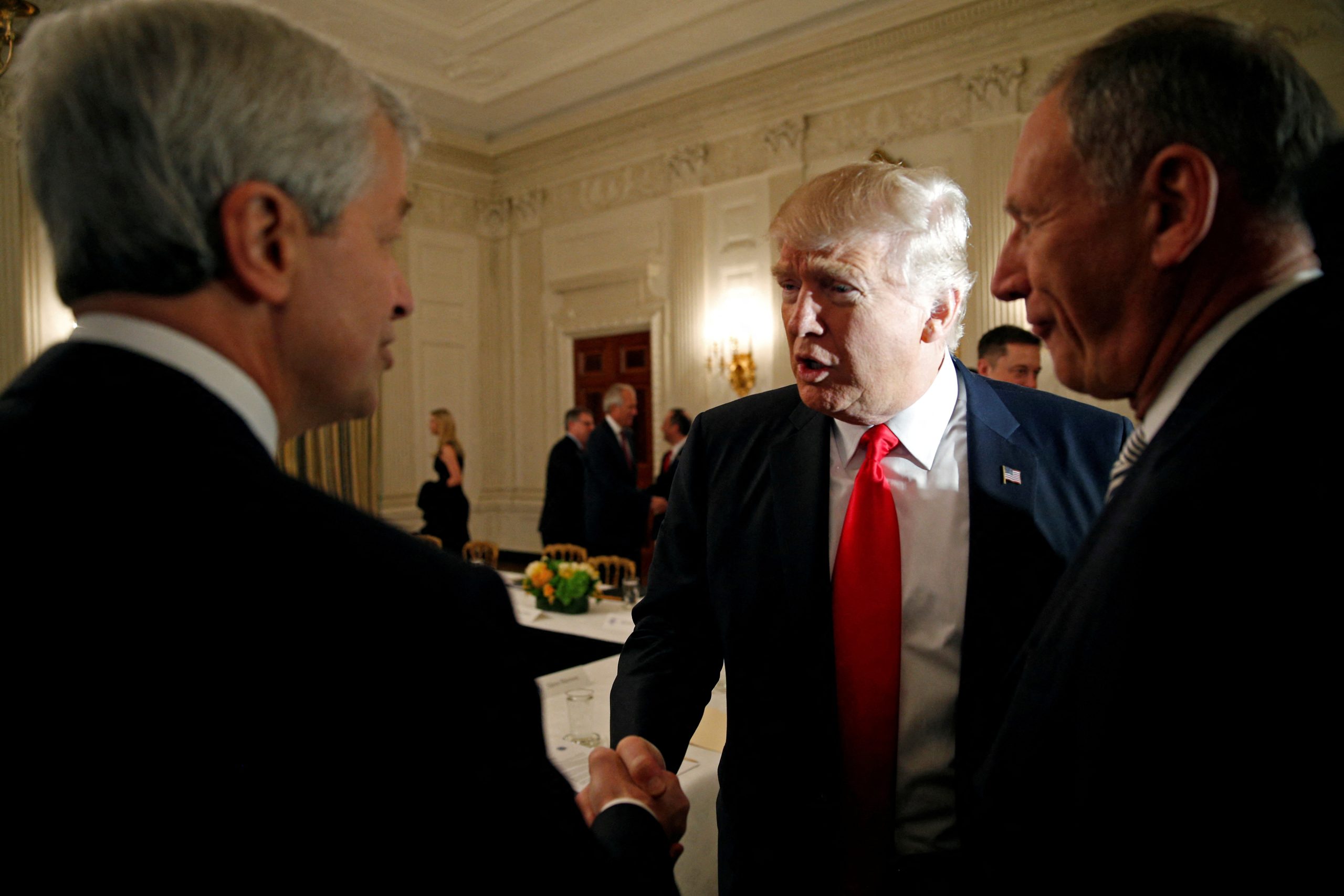A significant shift in the complex relationship between JPMorgan Chase CEO Jamie Dimon and former President Donald Trump has recently emerged, marked by a series of reported visits to the White House that signal a notable thaw in their previously icy dynamic. These high-level engagements, the first direct discussions in years, underscore a renewed willingness from both prominent figures to engage on critical national issues, particularly those concerning the financial landscape and broader economic strategies.
Reports indicate that Jamie Dimon, a titan of Wall Street banking and leader of America’s largest bank, held at least two meetings at the White House over the past two months. During these crucial discussions, which reportedly included Treasury Secretary Scott Bessent and Commerce Secretary Howard Lutnick, the focus centered on pivotal topics such as the US economy, international trade agreements, and the intricate framework of financial regulations. These private deliberations highlight a potential for convergence on key policy matters between the former president and a leading voice in global finance.
This re-engagement builds upon an earlier exclusive report that revealed top aides within Donald Trump’s campaign had been actively utilizing Dimon as a trusted “sounding board” for their economic policy formulations. The revelation from last November indicated a quiet, behind-the-scenes consultation process, suggesting a more pragmatic approach to economic thought leadership within Trump’s inner circle even before the recent direct meetings commenced, bridging a gap that had persisted for years.
The current warming trend stands in stark contrast to the historical friction that characterized their past interactions. While Jamie Dimon had met with Donald Trump during his first term, the JPMorgan Chase CEO later became a vocal critic, particularly after Trump’s refusal to concede the 2020 election results. This public disagreement contributed to a perception of a strained relationship, making the recent overtures and visits to the White House particularly noteworthy within the spheres of US politics and finance.
Adding layers to this evolving narrative, Dimon recently stirred considerable attention with his candid remarks during the World Economic Forum in Davos. He notably chastised critics of Trump’s proposed tariffs on major trading partners like China, Mexico, and Canada, asserting that they should “get over it.” Furthermore, Dimon’s assessment that Trump was “kind of right” regarding the issue of illegal migrants reportedly drew the ire of the Biden administration, leading to his exclusion from their White House engagements, further highlighting his independent stance.
These high-stakes meetings between the former president and the influential banking chief hold considerable implications for the future trajectory of economic policy and the political landscape. For Donald Trump, securing counsel from a figure of Dimon’s stature lends credibility to his economic platform. For Jamie Dimon and JPMorgan Chase, the engagement provides a direct channel to influence potential future economic decisions, especially as the nation approaches a pivotal election cycle.
Ultimately, the renewed dialogue between Jamie Dimon and Donald Trump signals a pragmatic realignment within elite circles, where economic pragmatism may be superseding past political animosities. As Wall Street closely observes these developments, the collaboration hints at a potential for influential figures to shape future US economic and financial policies, regardless of past ideological divides, making these discussions a critical point of interest for market observers and political analysts alike.






Leave a Reply